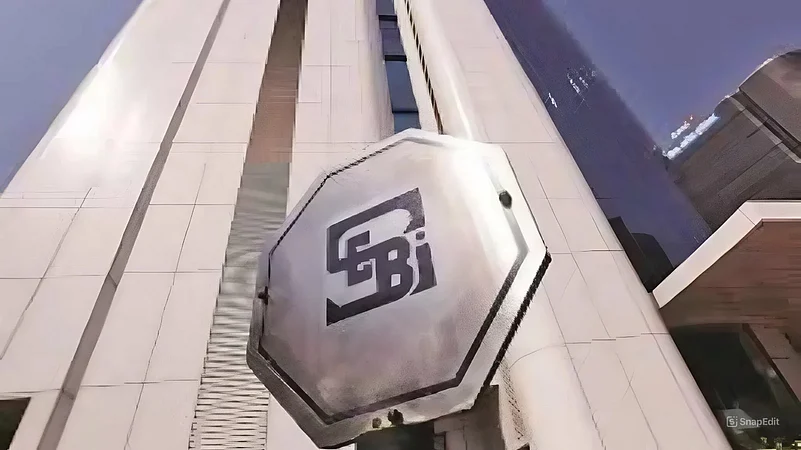Markets regulator Sebi will soon set up a working group to undertake a comprehensive review of short selling and the Securities Lending and Borrowing (SLB) frameworks, its Chairman Tuhin Kanta Pandey said on Friday.
The framework for short selling, introduced in 2007, has largely remained unchanged since its inception. Similarly, the SLB mechanism, rolled out in 2008 and modified a few times since, continues to be underdeveloped compared to global markets, highlighting the need for a thorough reassessment.
Explaining the move, Pandey said, "We will soon form a working group to comprehensively review short selling and the SLB frameworks," while speaking at the CNBC-TV18 Global Leadership Summit.
Under the SLB mechanism, investors or institutions holding shares in their demat accounts can lend them to other market participants for a fee.
The transaction is executed through the stock exchange platform, with the clearing corporation providing a counter-guarantee to ensure smooth and secure settlement.
Experts noted that borrowers typically use these securities for short-selling or to avoid settlement failures.
By enabling investors to earn additional income on otherwise idle shares, the SLB framework not only benefits lenders but also improves liquidity and overall market efficiency.
Pandey further added that comprehensive reviews of stockbroker and mutual fund regulations are already underway.
"We will soon take up a similar in-depth review of the Listing Obligations and Disclosure Requirements (LODR) 2015 and settlement regulations," he said.
Pandey also addressed concerns regarding foreign portfolio investor (FPI) outflows, emphasising that global investors continue to have strong confidence in India's growth story.
"There is a very strong faith that FPIs have in India's story," he said responding to a query on the outflow.
While discussions often focus on net outflows, he explained that a significant portion of FPI activity involves primary market investments, which offset secondary market movements.
He added that India's markets are now far more resilient to capital flow fluctuations. Pandey pointed out that domestic participation has grown substantially, with individual investors now owning about 18 per cent of listed companies, supported by robust domestic institutional investors (DIIs).
"FPIs are not subordinate but are now complemented by strong domestic flows," he noted, highlighting that FPIs still collectively hold around USD 900 billion in market capitalisation in India.
When asked if the regulator was considering a ban on weekly expiries, Pandey declined to make any definitive comment. "Please don't put words in my mouth. I think I've said enough on this subject. The certainty right now is that the system is on and it is working," he said.
He assured that any future decisions would be based on broad consultations.
Pandey said that Sebi's approach will remain calibrated and data-driven, aimed at addressing market imperfections without abrupt action. "We are looking into a consultative, database-driven approach," he explained.














